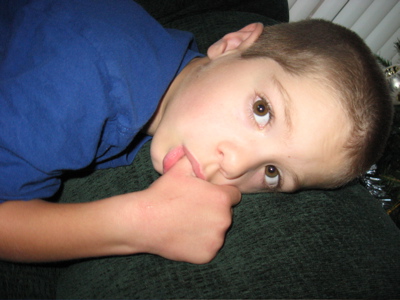
Thumb Sucking Effects on Social Interaction of a Seven-Year-Old Child

Human beings often have peculiar habits they portray under different circumstances. One such habit is thumb sucking among children. Most children practice thumb sucking when they are anxious, hungry, bored, or stressed, as a means of self- solace.
Did you know that some kids start it as early as when they are still in the womb?
While most of the kids outgrow the habit (mostly from age 4 to 6), others continue thumb sucking up to the age of 10, while a minority do it even when they are grown-ups.
Does Thumb Sucking Have Any Effects on Social Interaction of a Seven-Year-Old Child?

During the first two years of thumb sucking, the habit has no effects on the baby as he/she doesn’t even know he/she is doing it. But if the kid doesn’t quit the habit, it definitely becomes a concern. This is more so because, by the time he’s five years, he becomes conscious, especially of his peers’ reactions. This may affect the kid’s social interaction in the following ways:
1. Lack of Self-Esteem
The dental alignment of his teeth will be affected in that the teeth are going to be pushed outward and result in an overbite. This may make him feel unattractive compared to his peers. His speech may also be affected to an extent he cannot pronounce some sounds.
Worse, his peers may tease and make fun of him, remember they are equally young and have no clue what their sentiments can do to the thumb sucker’s ego. Some of them will even avoid playing with him because he is “a baby.”
It is frustrating to stand out for a negative reason. This can affect the kid’s self-confidence and self-esteem.
2. Poor Socialization
Usually, the kid finds solace in thumb sucking. The thumb becomes the greatest companion. Being in the company of others may not be in his interest. He, therefore, prefers being alone and do what will not distract him. This may affect his personality even when he becomes an adult.
3. Unhappiness
Due to the bullying he goes through in school or even at home, a thumb sucker may become disappointed and unhappy with the way things are.
Like any addiction, thumb sucking is a habit that doesn’t necessarily disappear easily. Parents should be cautious not to use reprimanding methods to stop their kids from the habit. Doing so will hurt their self-esteem or stress them more, which will only aggravate the problem. Positive reinforcement is always best when changing behaviors.
Instead, you can find ways of assisting him to break the habit. This could be through constantly reminding him problems the habit is likely to cause like dental formula misalignment. You can also try to eliminate whatever is causing the thumb sucking – hunger, stress, boredom, anxiety or any other cause.
If very entrenched, you can opt to use orthodontic devices that will make thumb sucking unpleasant along with a motivational program and the kid will conveniently quit the habit.
